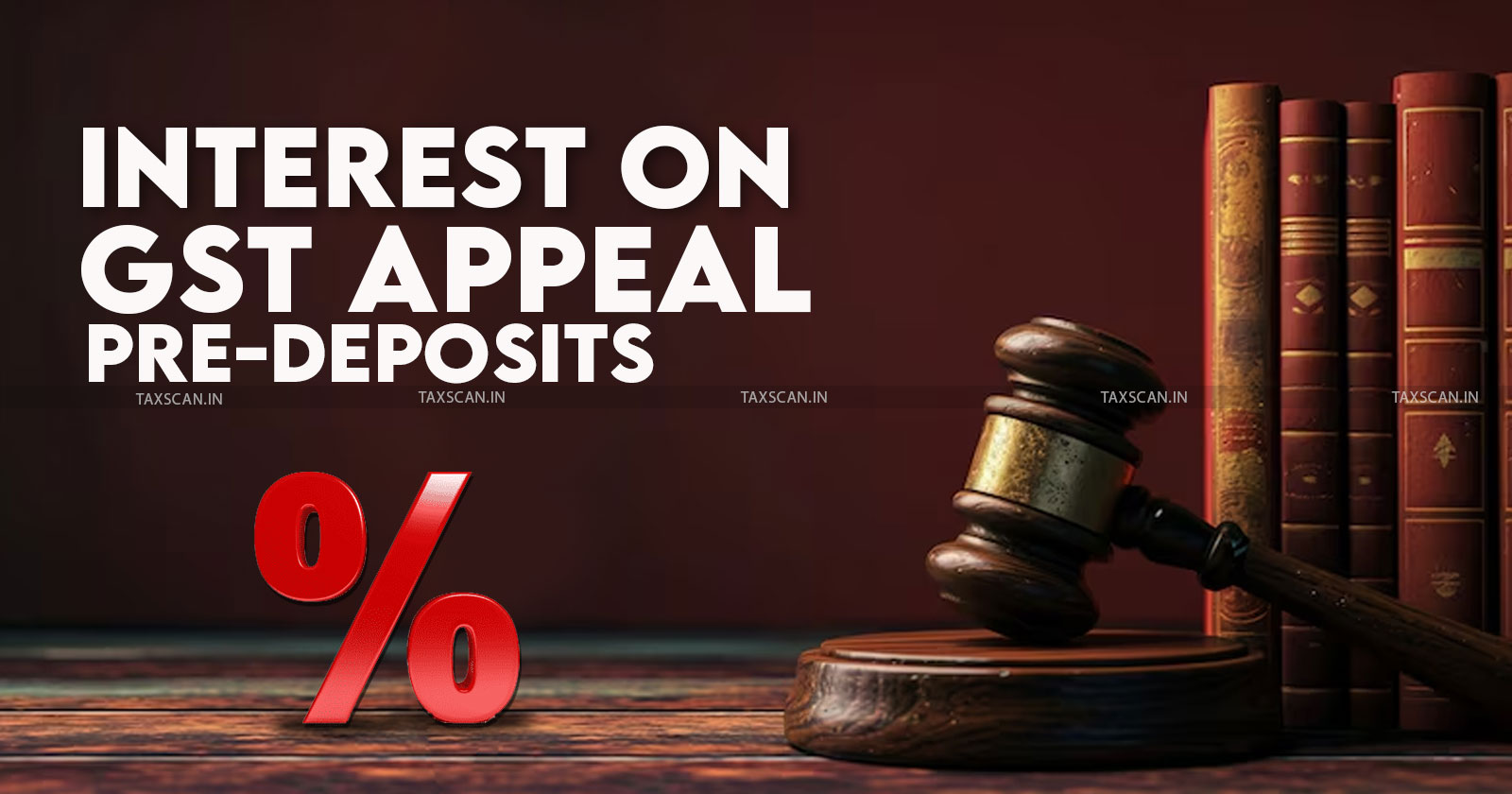You can Avail Interest on GST Appellate Authority and Appellate Tribunal Appeal Pre-Deposits! Know Why S. 115 GST Act could Backfire for the Government
Section 115 mandates that the government must pay interest on refund of pre-deposits

Supposedly, a taxpayer (appellant) disagrees with a decision made by the tax authorities and files an appeal with the Appellate Authority or the Appellate Tribunal.
To file the appeal, the taxpayer might be required to deposit a certain amount of money as per Sections 107(6) or 112(8) of the Goods and Services Tax Act.
Section 115 of the Goods and Services Tax Act
If the Appellate Authority or the Appellate Tribunal rules in favor of the taxpayer, the deposited amount needs to be refunded. Section 115 of the Central Goods and Services Tax (CGST) Act, 2017 deals with interest on refunds arising from appeals filed by taxpayers. Section 115 mandates that the government must pay interest on this refund.
Interest Rate on GST Refunds
The interest rate for the refund is the same as the rate specified under Section 56 of the CGST Act. This rate is determined by the government and can change over time. Currently the interest rate for refunds is 6% p.a. or 0.5% per month. The interest is calculated from the date the taxpayer deposited the appeal amount till the date of the refund.
Similar conditions also existed in the pre-GST – VAT regime. One such case in favour of taxpayers-assessees is as follows:
The revenue had submitted that the petitioner is not entitled to interest on the amount due as there is no specific provision under the VAT Act for payment of interest on a refund.
However, the Court observed that the respondent was obliged to refund the amount so collected to the petitioner immediately after the dismissal of SLP. Further viewed that even though, there are no provisions of payment of interest on refund of amount so collected under the VAT Act, since the SLP was dismissed on 17.04.2017, the petitioner would be eligible for interest @6% per annum w.e.f. 17.04.2017 till the date of refund.
In simpler terms, if you file an appeal and have to deposit money, and you win the appeal, you get your money back with interest.
This section only applies to refunds arising from appeals, not other types of refunds under the GST regime.
Read Also: GST Refunds: The Complete Digest
Section 54 of the Central Goods and Services Tax (CGST) Act, 2017 deals with claiming refunds of tax paid under the GST regime.
Who can claim a refund?
Anyone who has paid GST and interest on it, or any other amount mandated by the Act, can apply for a refund under Section 54.
Exporters of goods or services or both
Zero-rated supplies - These are supplies on which a 0% GST rate applies, such as exports or supplies to specified entities
Deemed exports - These are transactions treated as exports even though they involve movement of goods or services within the country
Unutilized Input Tax Credit ( ITC ) - ITC is the credit a business can claim for GST paid on purchases related to its business operations. When the ITC exceeds the amount of GST payable, a refund can be claimed for the difference
Time limit for claiming a refund
Generally, you have two years from the relevant date to file a refund application. The "relevant date" can vary depending on the type of refund being claimed.
How to claim a refund?
The Central Goods and Services Tax Act mandates filing an application in a prescribed form and manner. This is typically done electronically on the Goods and Services Tax (GST) portal. Specific timelines and forms might apply depending on the type of refund.
Read Also: Case Digest on IGST Refund | Taxscan
The authorities can withhold the refund if you have not filed tax returns or have outstanding tax dues. They can deduct any tax, interest, penalty etc., you owe from the refund amount.
Conclusion
While Section 115 ensures fair treatment for taxpayers by mandating interest on appeal refunds, it is wise to acknowledge the potential impact on government revenue.
Refunds issued with interest under Section 115 directly reduce the overall GST revenue. This may impact social welfare programs, infrastructure development, and other public expenditures financed by GST revenue.
Increased Litigation Costs – The prospect of interest-bearing refunds might incentivize more GST-related disputes and appeals. This can lead to a rise in litigation costs for both the government and taxpayers, further straining resources.
Striking a balance between taxpayer rights and revenue collection is essential. Streamlining the dispute resolution process can minimize the time period for which interest accrues on refunds.
Section 115 plays a vital role in upholding taxpayer rights within the GST framework. However, its potential impact on government revenue necessitates a comprehensive approach. By exploring solutions like efficient dispute resolutions, a balance can be achieved that improves voluntary tax compliance while safeguarding the government's fiscal health.
Support our journalism by subscribing to Taxscan premium. Follow us on Telegram for quick updates


